21 sayings you'll only understand if you're Irish
Amy Daire,Melia Robinson,Erin McDowell

- The Irish are known in the US for their quick speaking and heavy accents.
- They've also got a few unique phrases and words, like "craic" and "eejits."
"What's the craic?" might sound confusing but, in Ireland, it's another way to ask how someone is.
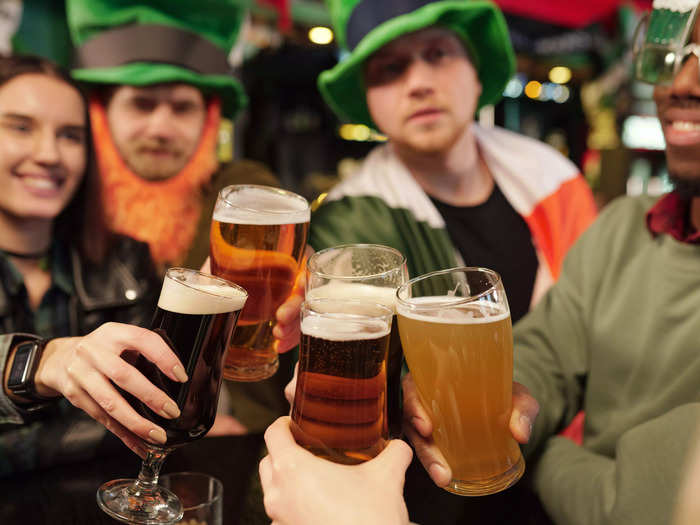
Greetings like "Any craic?" and "How's the craic?" most likely confuse tourists because craic is pronounced like "crack."
The most straightforward definition of "craic" is fun or enjoyment, but the phrase "What's the craic?" can be a substitute for "How are you?" A typical response is "divil a bit," which means "not much."
The Irish saying "away with the fairies" is used when someone isn't facing reality or is living in la-la land.

This phrase got its origin thanks to the folk tales about fairies picking people up and taking them away.
In the Emerald Isle, if your friends are getting rowdy or making a fool of themselves, you'd say they are "acting the maggot."
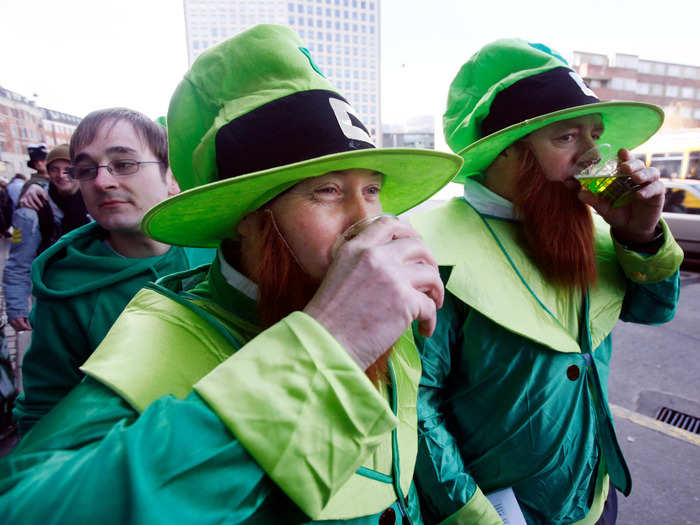
This phrase could also be used to talk about anything that isn't acting properly, like if your phone is on the fritz or the trains are running way behind schedule.
"On me tod" translates to "on my own."

People will say this when they're going out alone or just alone in a general sense.
It is said to come from Tod Sloane, an American jockey whose parents were out of the picture, leaving him a lone wolf during his childhood. He was a successful horse racer in the West, but when he moved across the pond he was harshly made fun of for his riding style, and therefore "alone" once more.
"Look at the state o' you!" implies that a person's attire, personal hygiene, intoxication level, or general demeanor is worrisome.

It's a popular exclamation used in inner Dublin. One might also describe his drinking companion as being in a "bleedin' state" if he gets "wrecked" at the pub.
People will often say they or their friends are "as happy as Larry" when they have no worries or cares in the world.
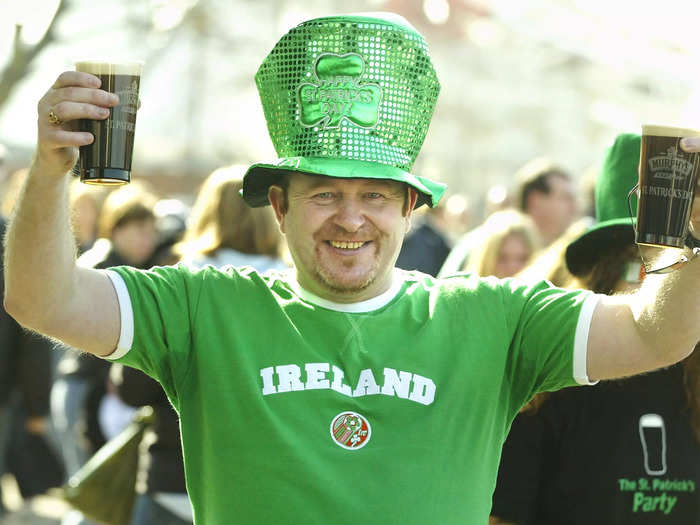
While this saying may have originated in New Zealand, it has grown popular halfway across the globe in Ireland.
"What's the story, horse?" — abbreviated as "story horse?" — is how you ask a buddy what's up.
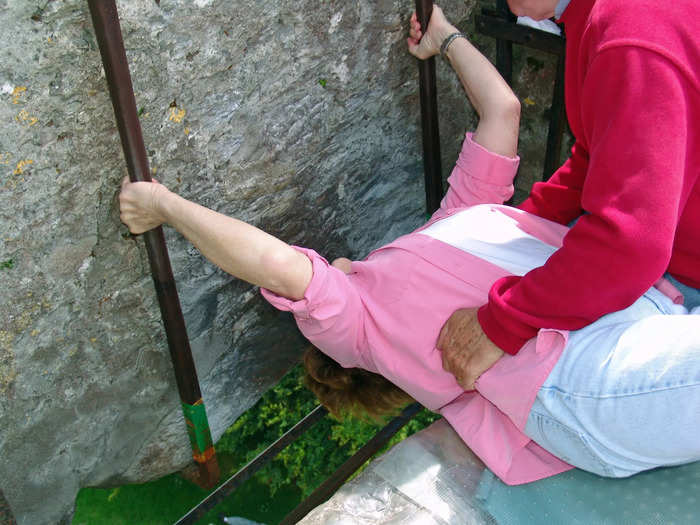
It's a less breezy greeting than its American counterpart and invites the other person to really dive into what's been going on in life.
"What eejits" is basically another way of saying "what fools" or "what idiots."
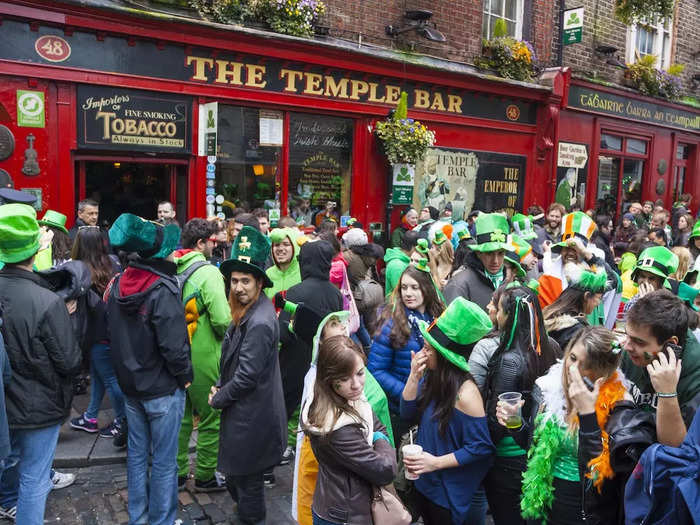
This is a playful phrase that Northern Irelanders often use when calling out their friends for being silly, drunk, or foolish.
"Sure you know yourself" essentially means "you understand" or "it's up to you."

This slang saying is quite popular and often used as a reply to questions like, "What were you thinking?" or "How are you?"
It can be used when you want to avoid decision-making or a lengthy explanation.
"Take your point and the goals will come" is usually used when referring to sports.

Ireland is a big country for football. When talking about the sport, this idiom means that players should take any shot they might get, preferably the easiest one.
A mischievous child or person might be described as "suffering from a double dose of original sin."
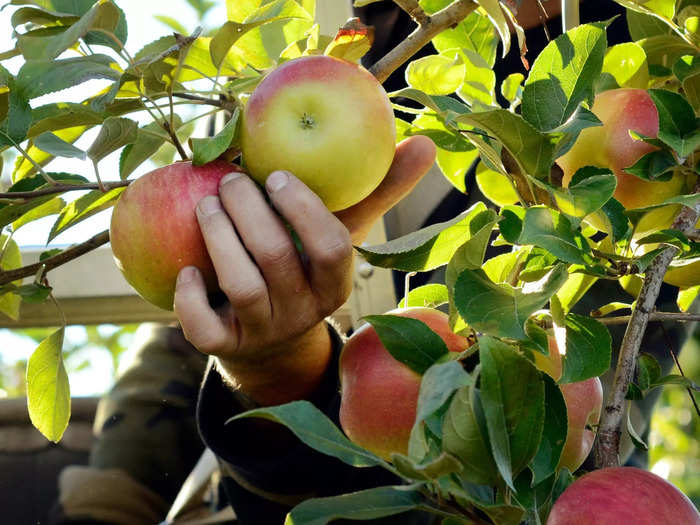
The Bible proposes that when Adam ate the forbidden fruit, he cast a state of sin on all mankind. Today, if a child is particularly mischievous, he's said to have been twice cursed by Adam's slip-up.
The phrase became popular in the 1880s when proponents of British rule over Ireland attributed what they saw as Irishmen's depravity of character (and the famine, some argued) to their second helping of original sin.
An attractive person might be referred to as a "fine thing."

In an Irish accent, it might sound more like "fine ting."
Eventually, you might also make a "fine thing" your "mot."

"Mot" derives from "maith," the Irish word for "good," "well," or "like" and is used to refer to someone's girlfriend.
"'Tis only a stepmother would blame you" basically means "don't worry about it."

This one is a tad unfair to stepmothers everywhere. It basically means there's no need to be embarrassed or feel bad about committing a small offense, especially if the deed is so insignificant that only a jealous, belittling stepmother could find fault with you.
"Sucking diesel" means reaping the rewards of hard work.

When you've fallen into good fortune thanks to your own hard work — not the good ol' luck of the Irish — you'd say that you are "sucking diesel now."
This phrase is a way to pat yourself on the back about things going well in your life.
A loved one may say "may the road rise up to meet you" on your wedding day.

You may recognize this popular blessing (in Irish Gaelic: Go n-éirí an bóthar leat) from Catholic weddings or on cross-stitched pillows in your nan's house.
One of the main characteristics of Celtic Christianity is the use of images of nature to show how God interacts with people. "May the road rise up to meet you/ May the wind be always at your back/ May the sun shine warm upon your face ..." uses everyday images to mean may God remove obstacles in your journey through life.
"Your son is your son today, but your daughter is your daughter forever" is one of the more misogynistic sayings.

This phrase is pretty misogynistic. Basically, it means a man is only a son until he takes a wife, but as a daughter gets older, she will stay near the family, draining it of money and time for years to come.
In Irish Gaelic, it's Is é do mhac do mhac inniú, ach is í d'iníon d'iníon go deo.
You order a pint of "black stuff" at the bar.
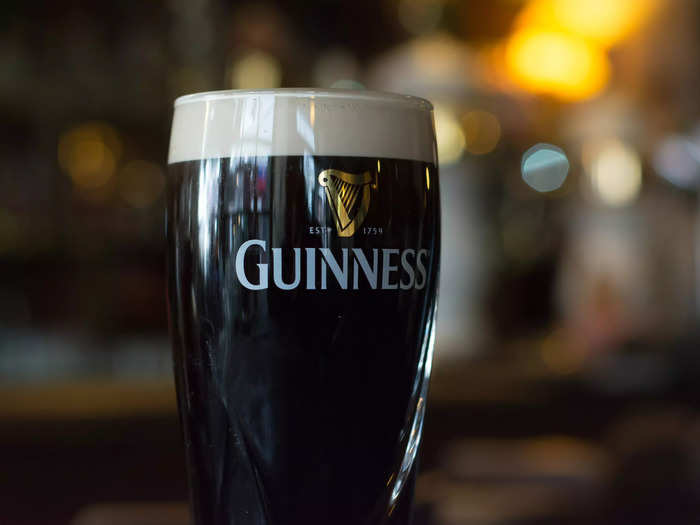
This refers to a pint of Guinness, which in reality is a deep ruby red color and not black.
A "chancer" is a slightly insulting way to describe someone who's unafraid to take risks.

This could be a major risk, or simply something you call your friend who's chatting up someone who's out of his league.
"Delira and excira" means "delighted and excited."

The phrase was popularized by Irish radio host Gay Byrne on his morning radio show.
Whatever you do, don't let an Irish person catch you calling St. Patrick's Day "St. Patty's Day."

Any true Irish person will tell you that it's St. Paddy's, not St. Patty's. Many are pretty passionate about putting an end to the misspelling and mispronunciation, so on St. Patrick's Day, don't be surprised if you hear people at the local pub having a heated discussion about it.
READ MORE ARTICLES ON
Popular Right Now
Popular Keywords
Advertisement